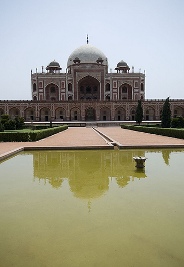New Delhi to Imprison Dolphins?
PETA India hopes that Jairam Ramesh—union minister of state for environment and forests—will heed the message of last month’s disaster at SeaWorld and immediately halt plans to build a dolphinarium to house Gangetic dolphins at the National Zoological Park in New Delhi.
Gangetic dolphins are a critically endangered species of freshwater dolphin. They were recently declared the National Aquatic Animal of India, but the way to save them is not by keeping them in chemically treated pools. Most captive dolphins die prematurely and live to only half the age of their wild brothers and sisters. Wild dolphins live with family pods, and capturing even one dolphin disrupts the entire group. To obtain a female dolphin of breeding age, for example, boats are used to chase the pod to shallow waters, where the animals are surrounded with nets that are gradually closed and lifted onto the boats. Unwanted dolphins are thrown back. Some animals die from shock or stress, and others slowly succumb to pneumonia when water enters their lungs through their blowholes. Pregnant females may spontaneously abort babies.
Instead of condemning dolphins to a grim fate in a tank, the Department of Environment and Forests would better serve these endangered animals by taking decisive measures to protect and conserve the beleaguered Gangetic dolphins in their natural habitat. Back in 2001, thanks to the help of many dedicated supporters, PETA successfully convinced the Virginia Marine Science Museum not to add a dolphin tank to its facilities. Instead, Virginia Beach, Virginia, visitors who want to see marine mammals visit the beachfront along the Atlantic Ocean and view the animals in their natural environments. With public sentiment against aquatic prisons at an all-time high, we’re hopeful that the Indian government will make the humane decision to keep these sensitive, intelligent, and endangered animals where nature intended them to be.
Written by Logan Scherer


